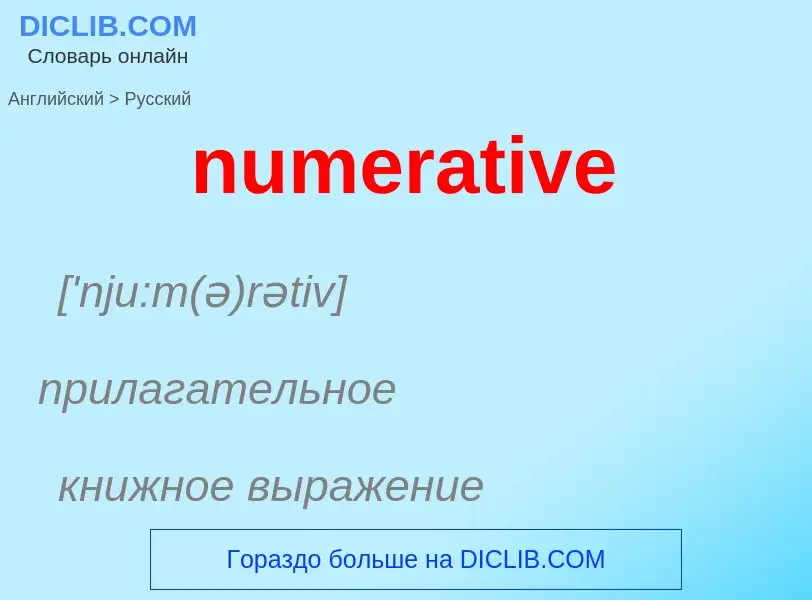ترجمة وتحليل الكلمات عن طريق الذكاء الاصطناعي ChatGPT
في هذه الصفحة يمكنك الحصول على تحليل مفصل لكلمة أو عبارة باستخدام أفضل تقنيات الذكاء الاصطناعي المتوفرة اليوم:
- كيف يتم استخدام الكلمة في اللغة
- تردد الكلمة
- ما إذا كانت الكلمة تستخدم في كثير من الأحيان في اللغة المنطوقة أو المكتوبة
- خيارات الترجمة إلى الروسية أو الإسبانية، على التوالي
- أمثلة على استخدام الكلمة (عدة عبارات مع الترجمة)
- أصل الكلمة
numerative - ترجمة إلى الروسية
['nju:m(ə)rətiv]
прилагательное
книжное выражение
относящийся к счёту
исчислению или нумерации
[i'nju:m(ə)rit]
прилагательное
общая лексика
не разбирающийся в математике и в других точных науках
['nju:m(ə)rəb(ə)l]
общая лексика
исчислимый
счетный
прилагательное
общая лексика
исчислимый, поддающийся счету
математика
исчислимый
счётный
нумерируемый
تعريف
ويكيبيديا
The plural (sometimes abbreviated as pl., pl, or PL), in many languages, is one of the values of the grammatical category of number. The plural of a noun typically denotes a quantity greater than the default quantity represented by that noun. This default quantity is most commonly one (a form that represents this default quantity of one is said to be of singular number). Therefore, plurals most typically denote two or more of something, although they may also denote fractional, zero or negative amounts. An example of a plural is the English word cats, which corresponds to the singular cat.
Words of other types, such as verbs, adjectives and pronouns, also frequently have distinct plural forms, which are used in agreement with the number of their associated nouns.
Some languages also have a dual (denoting exactly two of something) or other systems of number categories. However, in English and many other languages, singular and plural are the only grammatical numbers, except for possible remnants of dual number in pronouns such as both and either.

![four in a row]]. four in a row]].](https://commons.wikimedia.org/wiki/Special:FilePath/Math games - Big Brother Mouse activity day.jpg?width=200)

